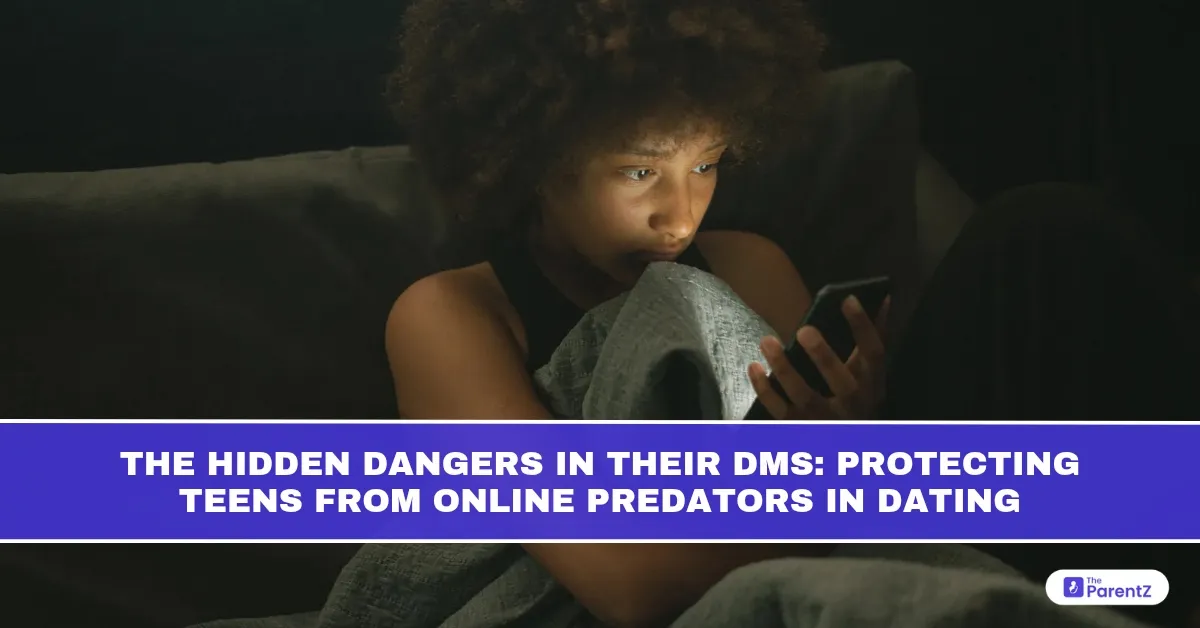It started with a simple comment on her TikTok dance video. "You're really talented!" Then, a follow-up request. Some DMs about shared interests. Two weeks later, someone's daughter was sending pictures to a "16-year-old boy" who turned out to be a 42-year-old predator three states away.
This isn't a rare horror story—it's becoming the norm in teen dating spaces online. Parents today are navigating territory no previous generation experienced. The dating world has transformed from passing notes in class to complex webs of DMs, disappearing messages, and algorithms designed to keep teens hooked on connections that aren't always what they seem.
This blog isn't meant to terrify parents. Rather, understanding this new landscape is the first step to helping teens navigate it safely. They're going to date and connect online, whether parents like it or not. The question is: will they do it with the knowledge and support they need to spot dangers, or will they figure it out alone through painful trial and error?
Let's talk about what's really happening in teen dating spaces today, why predators find such easy access to kids, and how parents can help without driving their teens further into secrecy.
Where Teen Dating Happens Now
Dating isn't just about official dating apps anymore. Teens connect romantically across platforms:
- Instagram DMs: Often, the first place flirting starts, with message requests from strangers or "friends of friends."
- TikTok: Comments lead to DMs, where relationships develop based on shared interests.
- Snapchat: Popular because messages disappear, creating a false sense of privacy.
- Discord: Gaming servers and interest groups become dating pools.
- Dating apps: Despite age restrictions, teens find ways to use Tinder and Bumble.
How Predators Find and Groom Teens
Online predators have refined their approaches for the digital age:
- Interest-based targeting: They study a teen's posts, then approach with "Wow, you like Taylor Swift too? I just got tickets to her show!"
- Validation bombing: Teens craving validation receive floods of compliments and understanding from someone who "gets them" when parents "just don't understand."
- Platform hopping: Starting conversations on public platforms, then moving to more private ones (WhatsApp, Telegram) where content can't be monitored.
- Creating false urgency: "I might delete my account soon, let's move to text" or "This is a limited offer."
- Normalization: Gradually introducing sexual topics or requests, making each step seem normal.
What makes these tactics so effective? Teens are developmentally primed to:
- Seek independence from parents
- Crave peer acceptance
- Experience intense emotions
- Feel invulnerable to risks
- Be naturally curious about relationships and sexuality
The Consequences Can Be Devastating
When things go wrong, the impacts can last a lifetime:
- Sexual exploitation and abuse
- Blackmail with shared intimate images
- Emotional manipulation leading to depression, anxiety, and PTSD
- Trust issues affecting future relationships
- In worst cases, physical danger from in-person meetings
"I thought he was 16 like me. We talked for months before I sent him pictures. Then he threatened to send them to my family unless I sent more. I was too scared to tell anyone."
Helping Without Helicoptering
How can parents protect their teens without destroying trust?
Start with Understanding, Not Judgment
Teens date online for valid reasons: social anxiety makes in-person connections hard; online spaces feel safer for LGBTQ+ teens, making connections based on interests rather than just proximity.
Have Real Conversations About Red Flags
Teach them to recognize warning signs:
- Anyone rushing the relationship
- Requests to keep the relationship secret
- Adults showing romantic interest in teens (even if the teen feels "mature")
- Requests for personal information or images
- Inconsistencies in stories
Create Safety Nets, Not Cages
- Agree on basic safety rules (like no in-person meetings without telling a trusted adult)
- Use privacy settings together on their platforms
- Create a judgment-free zone where they can come to you if something feels off
- Know their friends (online and offline)
- Consider parental controls as a backup, not the primary strategy
When to Step in More Firmly
Some situations require immediate intervention:
- Adults pursuing teens romantically
- Requests for sexual content
- Plans to meet in person with online-only connections
- Signs of emotional distress
- Secretive behavior beyond typical teen privacy
Building Digital Resilience
Today's teens will navigate online relationships throughout their entire lives. Rather than just setting rules, parents can help build skills:
- Critical thinking about who's behind profiles
- Setting and maintaining boundaries
- Recognizing manipulation
- Trusting their gut when something feels wrong
- Knowing they can talk to trusted adults without shame
"When my daughter told me about a guy messaging her, I wanted to grab her phone and block him. Instead, I asked questions, and we talked through the red flags together. She blocked him herself and now tells me about weird messages without fear."
Conclusion
Remember, the goal isn't to terrify teens about dating or make them fear connection. It's to help them find healthy relationships while developing the skills to protect themselves in a digital world everyone is still figuring out.
The best protection isn't controlling their every move—it's open conversation, education, and being the safe person they trust to turn to when things go wrong.





Be the first one to comment on this story.